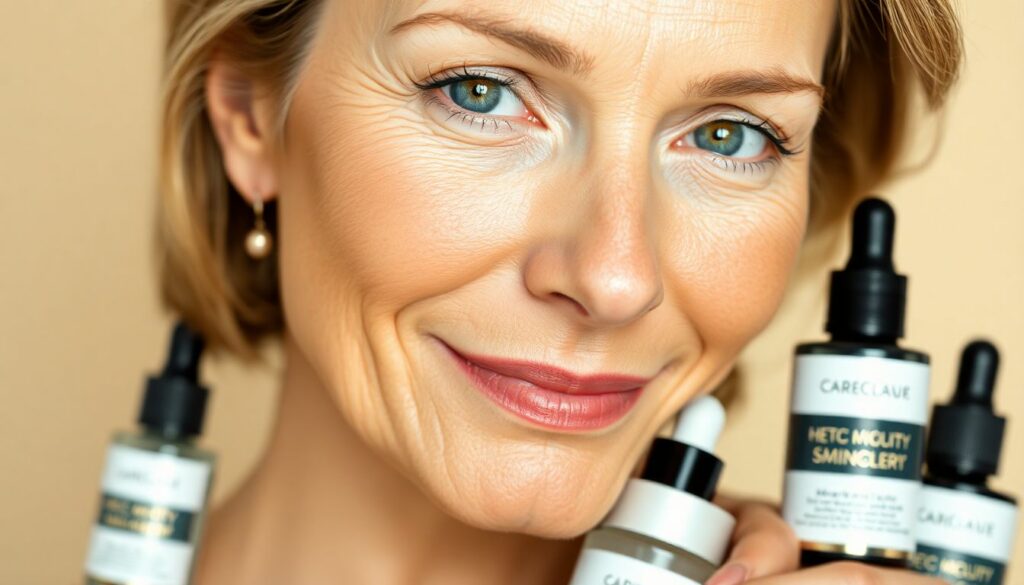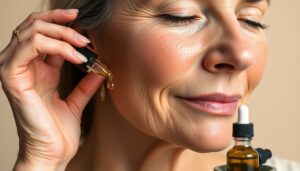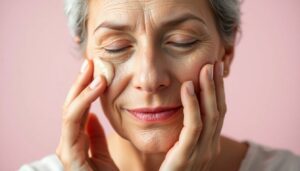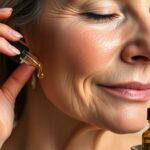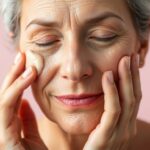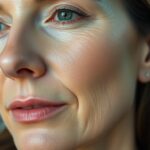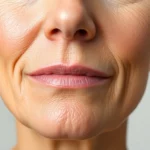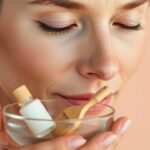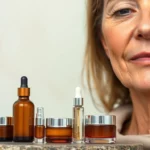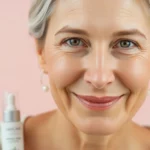Best way to retain that young glow? Aging women have wrinkles, fine lines, age spots, and dry skin. These changes are caused by sun exposure, genetics, and lifestyle. So this guide will assist you in choosing the best anti-aging creams so that you may look and feel great!
All About Aging Skin: What It Wants and What It Needs
Let us see how skin changes with age. You need to understand the science to pick the right cream.
The Science of Skin Aging
There are some significant changes that happen to our skin as we age. Collagen and elastin, which provide skin firmness, degrade. Unlike other cells in the body, skin cells do not renew as quickly. Which translates into less plumpness and more wrinkles. Moreover, free radicals damage things. Pollution and sun create these unstable molecules. Antioxidants come to the rescue. Moisturizing skin is crucial to combating these changes.
How to Tell Your Skin Type and What You Are Worried About
Skin types age uniquely from one another. Wrinkles may appear sooner on dry skin. Oily skin may have fewer wrinkles but larger pores. Combination skin has oily and dry areas. Sensitive skin can easily react with products. Figure out your skin type. Then address concerns such as wrinkles or age spots. Pick creams that are tailored to your needs.
Key Ingredients to Look For
There’s an array of ingredients that combat aging skin. Retinoids boost collagen. Hyaluronic acid hydrates. Peptides support firmness. Antioxidants, such as Vitamin C, are protective. If used right, these ingredients can make a difference.
The Best Anti-Aging Ingredients and What They Do
Let us take a look at key ingredients. They are true heroes in anti-aging cream!
Retinoids
Retinoids are a form of the vitamin A. They help the skin create more collagen. And, they also encourage cell turnover. This minimizes wrinkles and tones the skin. Retinoids include retinol, retinaldehyde and tretinoin. Start with a low amount. They are irritating at first.
Hyaluronic Acid
Hyaluronic acid is a hydration rock star. It draws moisture into the skin. This swells up wrinkles, making them less pronounced. It’s naturally in our bodies. So, it’s safe for most skin types. Look for it in oils or creams!
Peptides
Proteins are made from long chains of amino acids, and peptides are small groups of amino acids. They tell your skin to produce more collagen. The more collagen, the more firm your skin! But different peptides do different things. Some reduce wrinkles. Others improve skin texture. They can be a stellar addition to your anti-aging regimen.
Antioxidants
Antioxidants defend skin from damage. Free radicals are responsible for this damage. Vitamin C brightens skin. Vitamin E moisturizes. Green Tea Extract soothes inflammation. They keep your skin looking healthy.
Selecting the Best Cream Based on Your Skin Type
Choosing the best cream may be somewhat tricky. So these tips make it easier!
Texture and Formulation
Creams, lotions, serums and gels have varying consistencies. Rich creams are nice for dry skin. Oily skin can use sort of lightweight lotions. The point of serums is to deliver concentrated ingredients. Gels also offer a nice cooling effect. Choose a texture that is pleasant against your skin.
Using Other Ingredients
Other creams contain additional components. SPF is for sun protection; AHAs/BHAs are for exfoliation. Niacinamide reduces redness. These can be helpful. But having too many ingredients can be irritating for sensitive skin. Witness how your skin responds.
How to Read Labels (and Avoid Harmful Additives)
Read the lists of ingredients carefully. Avoid parabens and sulfates. They can be harsh. Synthetic fragrances can create issues as well. Choose natural, soothing ingredients. फार्मुल्यु एक झेस्टिन अरेुणं.
Applying Anti-Aging Cream: A Guide to Your Skincare Routine
Well, applying anti-aging cream properly enhances its effects. Here’s how.
How to Apply: Step-by-Step Instructions
First, cleanse your skin. Next, use a toner. Then, apply any serums. Gently massage your anti-aging cream after that. Do this in upward motions. This helps with absorption.
Frequency and Timing
Apply your anti-aging cream daily. It can be morning, evening or both. At the end of a day, the secret of getting results is consistency. If you’re using retinoids, start at night. This avoids sun sensitivity.
Additionally, It Can Be Combined with Other Anti-Aging Treatments
Anti-aging creams can combine with other treatments. Serums offer hydration and deliver ingredients. Masks offer deep treatment. Professional treatments, such as peels, improve results. Talk to a dermatologist for options.
Is There Any Lifestyle in Addition to Those Anti-Wrinkle Creams?
Creams are only part of the puzzle. Your lifestyle also matters.
Diet and Hydration
Eat a balanced diet. Eat plenty of fruits and vegetables. They are rich in antioxidants. Drink plenty of water. Hydration keeps skin supple.
Sun Protection
Sunscreen is essential! Put it on each day, even on cloudy days. Wear a broad-spectrum SPF 30 or greater. It is protective from sun damage.
Sleep and Stress Management
Get enough sleep. Aim for 7-8 hours each night. Exercise or meditation to manage stress. Stress and sleep deprivation age your skin.
Conclusion
Finding the right cream for aging skin opens up a new set of opportunities that, if done well, can give you an everlasting glowing skin. Use these strategies for glowing, youthful skin. So, go on, get started today and make skin health a priority!
